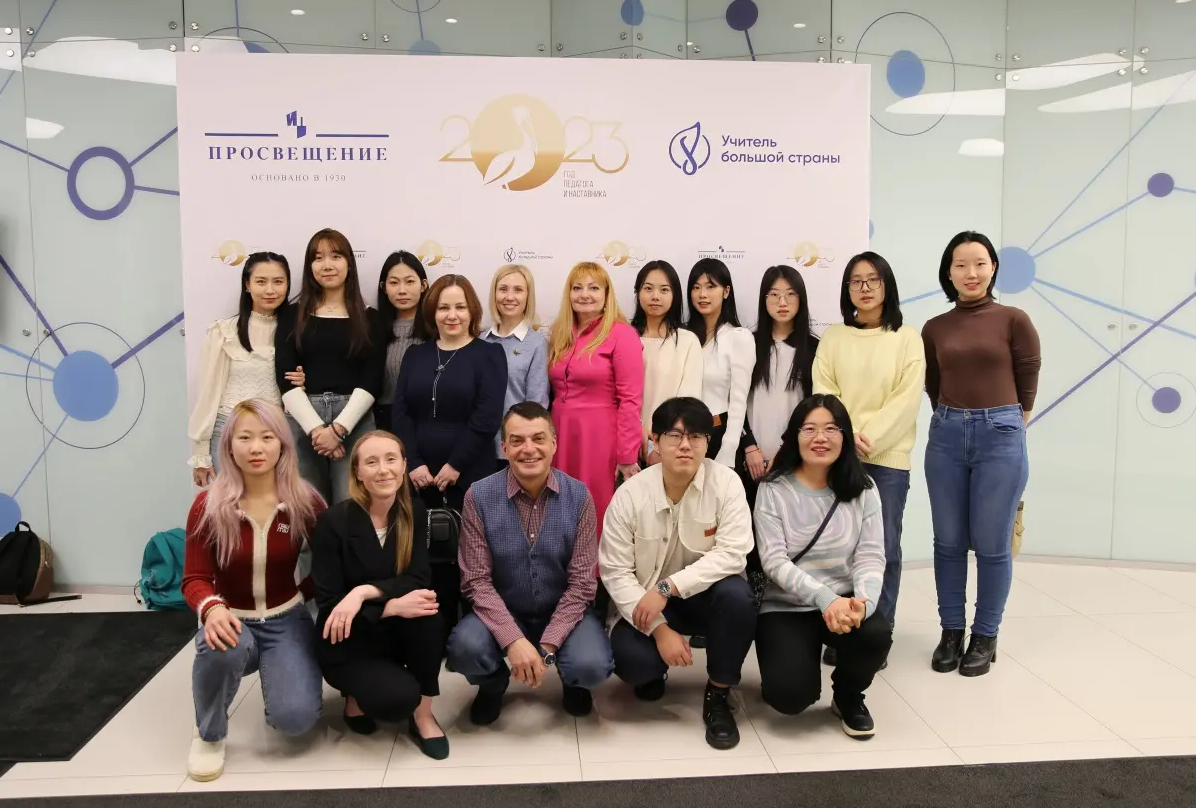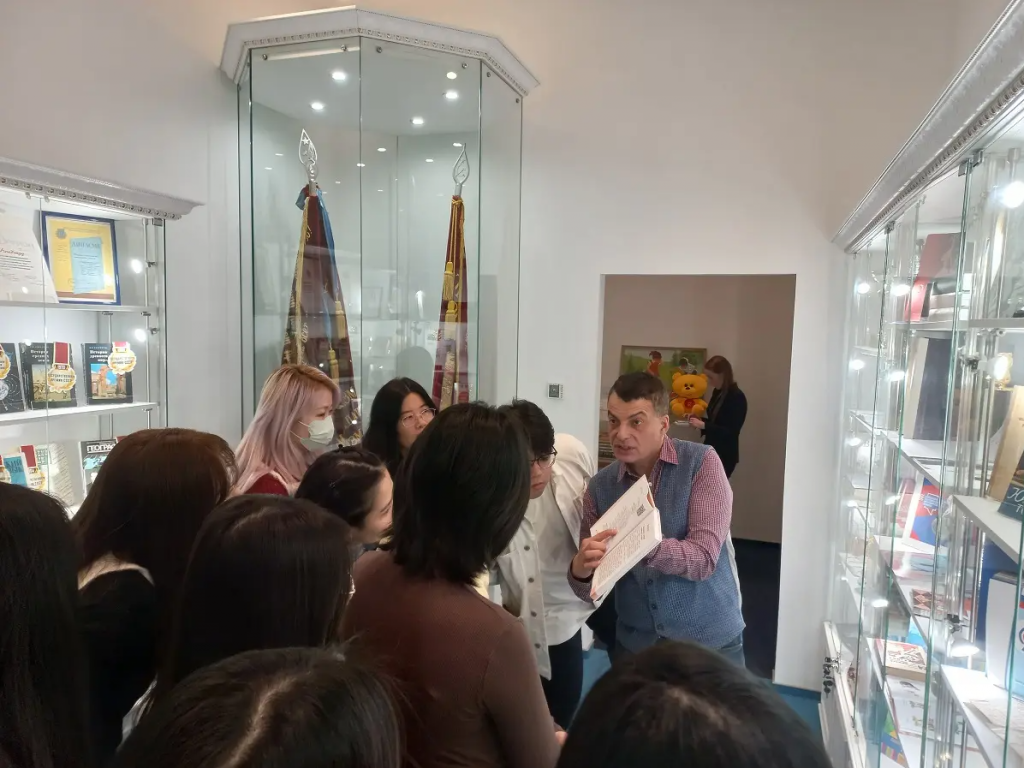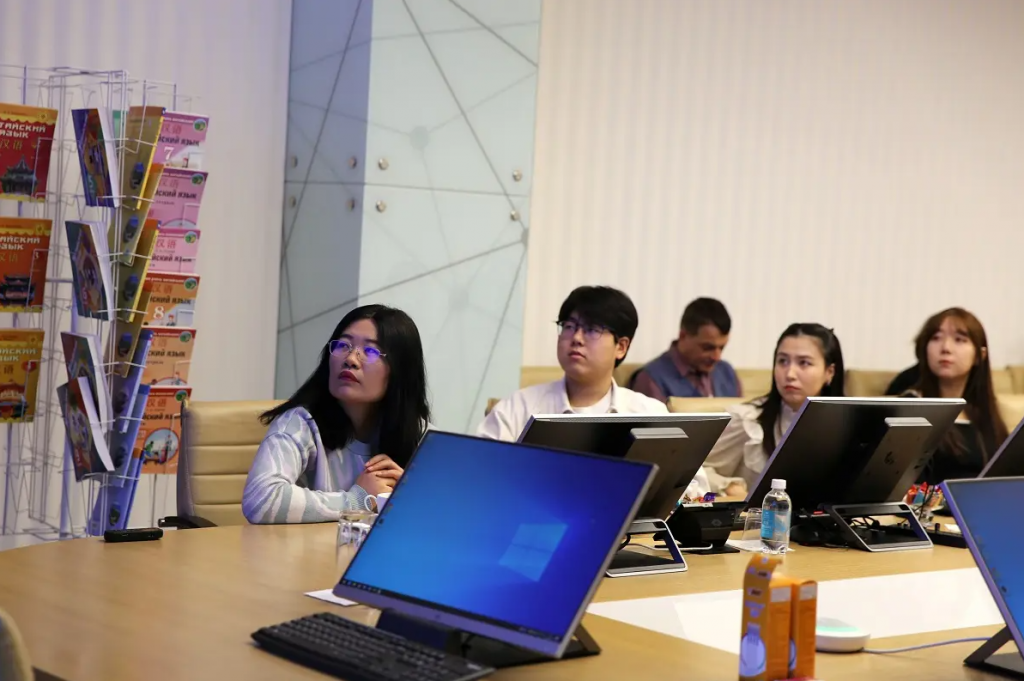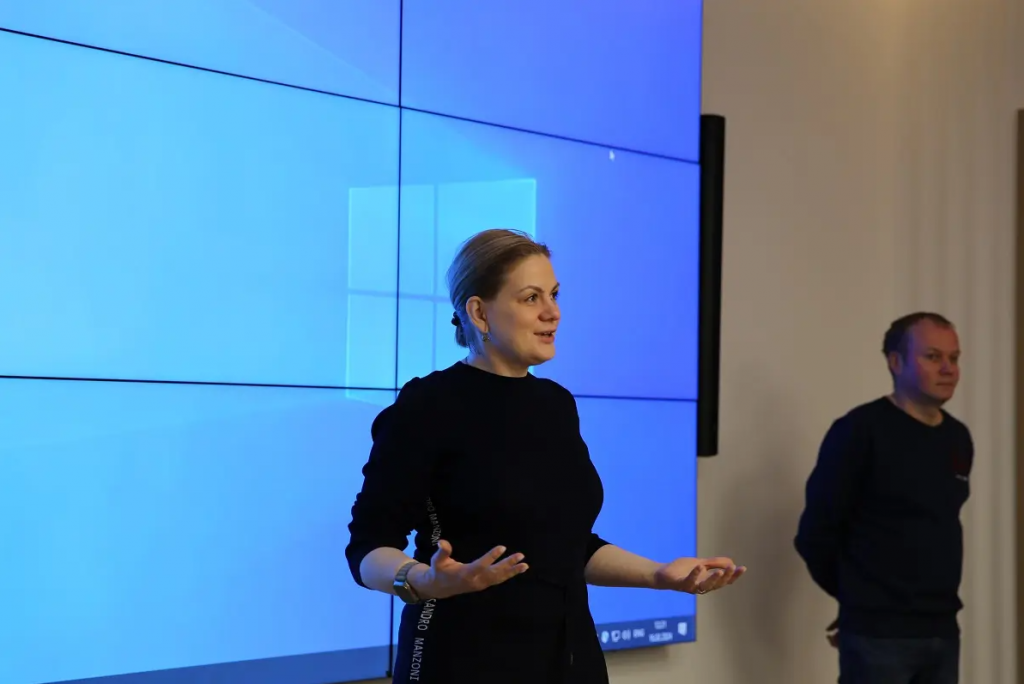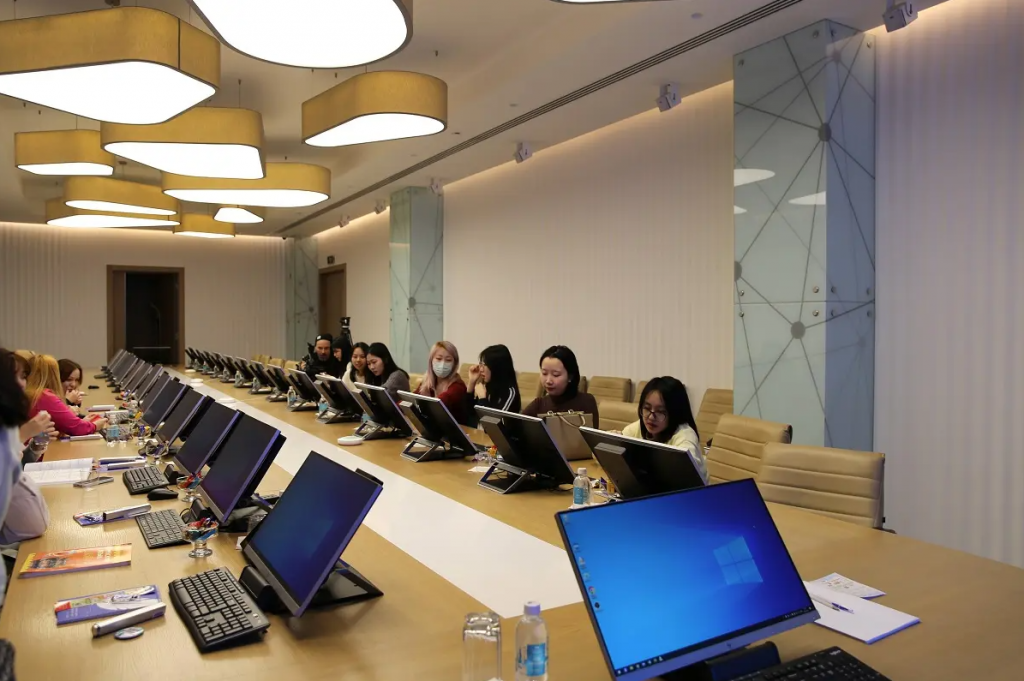On February 16, 2024, the Linguistic Education Centre of the publishing house Prosveshcheniye arranged a cultural and educational programme for Chinese students who have enrolled in Moscow City University to pursue their studies in the Russian language.
Tatiana Bokova, Deputy Director of the MCU’s Institute of Foreign Languages:
“We have brought a group of 11 people to Prosveshcheniye, and by the end of February, we expect an additional 11 students from various provinces in China. Moreover, next year we anticipate a total of 52 students to join us. The interest in studying in Russia is increasing, and we are grateful for the opportunity for our students to also study at our partner universities in China. We firmly believe that immersing oneself in the language environment, culture, and customs is the most effective method of learning a foreign language.”
From the first ABC books to digital educational services
Oleg Roskin, head of the department responsible for the organisation and control of compliance with work standards, led a tour of the Prosveshcheniye Museum for the guests. During the tour, he provided an overview of the publishing house’s significant role in the Russian education system since its establishment in 1934.
The expert told how the Soviet ABC books were changing, offering the guests a glimpse into the past. He also highlighted the publishing house’s contributions during the Great Patriotic War, illustrating the differences in textbook quality between peacetime and wartime.
The guests from China were informed about Prosveshcheniye’s primary objective of creating engaging textbooks that captivate students throughout the academic year. In the past, this involved the inclusion of funny characters that “accompanied” children in their learning journey. Today, the publishing house produces textbooks with a digital supplement.
In addition to exploring textbooks on various subjects, the students had the opportunity to examine publications in languages spoken by Russia’s small ethnic groups, including both older editions and contemporary works.
Russian education today: key principles
Irina Temnova, the head of the Linguistic Education Centre, organised a friendly tea party to discuss the current goals and directions of development in Russian education with the visiting guests.
Olga Zhigaleva, Deputy General Director of the Prosveshcheniye publishing house, highlighted the establishment of a unified educational space in Russia as a key principle.
The main objective of this initiative is to ensure that every child has equal access to high-quality education. To achieve this, the production of textbooks, electronic educational resources, and other learning materials is strictly regulated by the state, with thorough content evaluation.
The guests were also informed that today teachers in Russia have a broader role beyond just teaching.; they also play a crucial role in the moral and character development of students. Children are educated about the country’s history, the achievements of their ancestors, traditional Russian family values, and respect for the diverse cultures of our nation.
The experts expressed their enthusiasm for future collaborations with the guests from China in the future, and the guests asnwered by demonstrating their keen interest in establishing meaningful partnerships.
Huawei Li, student of MCU:
“I am currently studying in the Postgraduate program at MCU. I chose this university because it is highly regarded in the field of pedagogy. I have already worked as a teacher of the Russian and Chinese languages, and I aim to further my education here, improve my Russian language skills, and gain experience. I believe that now is a great time to be here as Russia and China have strong relations. I hope to bring my future students to Russia to learn the language, the traditions and culture and to become good specialists benefiting both Russia and China.”
Tatiana Bokova stressed that all these are not empty words: Chinese students are actively immersed in the cultural life of the capital. For example, they have already watched The Nutcracker at the Bolshoi Theater, visited the exhibition-forum “Russia” at VDNH, as well as a number of iconic museums for our country. The visit to Prosveshchenie became an important part of their acquaintance with the life of Russians and the realities of Russian education.
Photo: MCU

